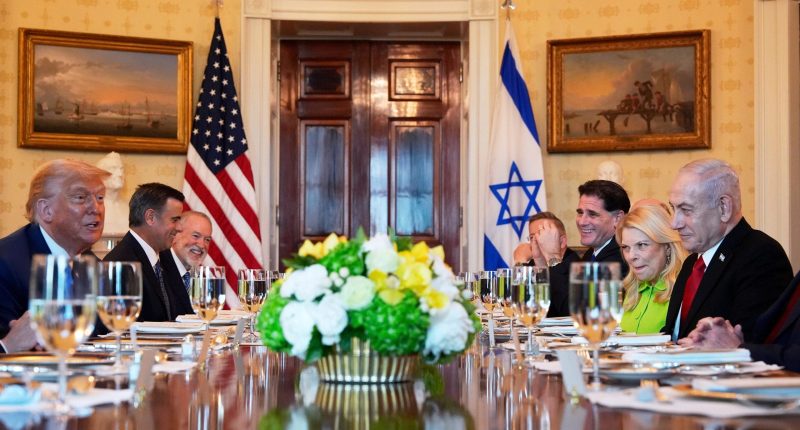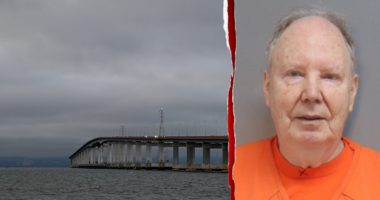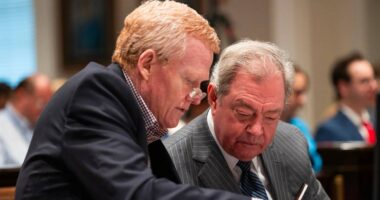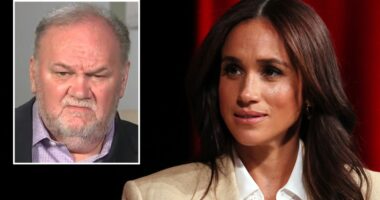Share this @internewscast.com
President Donald Trump and Israeli Prime Minister Benjamin Netanyahu gathered at the White House on Monday evening to emphasize a unified message: the U.S.-Israel partnership has significantly transformed the Middle East, with more developments anticipated.
“We achieved tremendous success together,” Trump remarked during the public segment of their dinner meeting. “I believe it will only lead to even greater achievements in the future.”
Netanyahu presented Trump with a formal letter he had sent to the Nobel Peace Prize committee. “It’s thoroughly deserved,” the prime minister stated. “You are actively cultivating peace, in one nation and region after another.”
According to a new JINSA memo titled Not Over, those triggers could include Iran rebuilding air defenses, diverting enriched uranium or importing advanced missile technology. “We’ve always viewed military action as a campaign, not a one-off,” Makovsky said. “Unfortunately, short of regime collapse in Tehran, this is going to be part of a series.”
Trump, however, emphasized his peacemaking ambitions. “I’m stopping wars,” he said.
He said the Iran strike “turned out… to be obliterated,” and praised the pilots involved: “They flew for 37 hours with zero problem mechanically. The biggest bombs we’ve ever dropped – non-nuclear. And we want to keep it non-nuclear, by the way.”
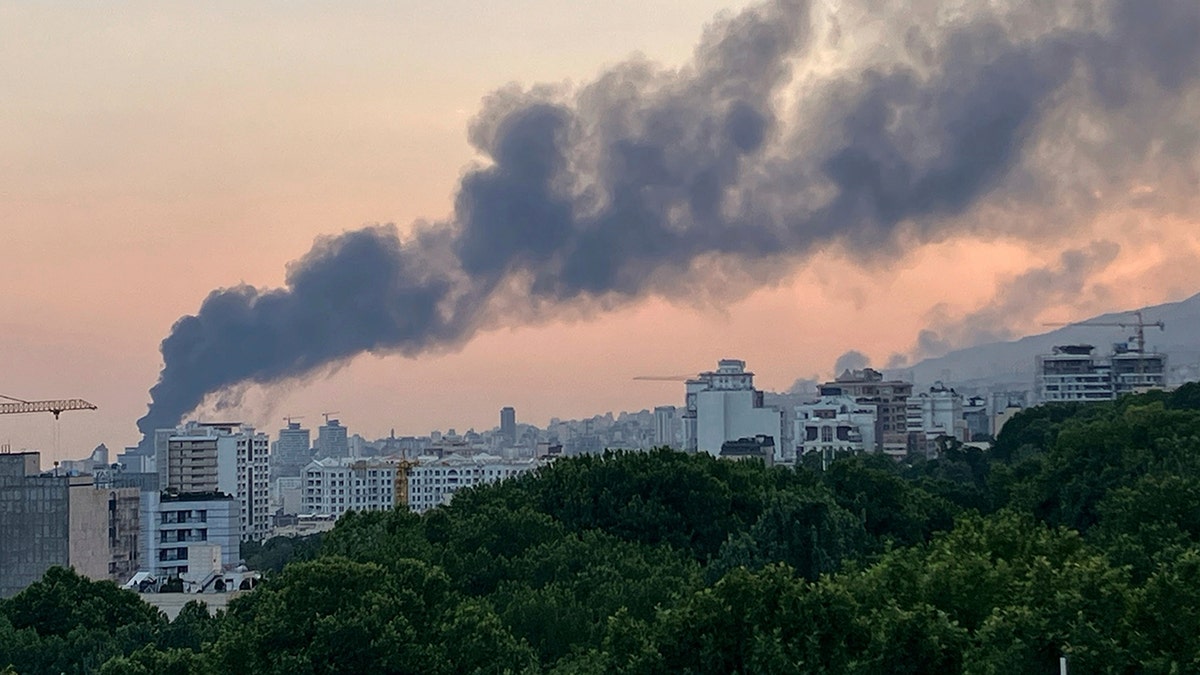
Smoke rises from the building of Iran’s state-run television after an Israeli strike in Tehran, June 16, 2025. (AP Photo)
Turning to Gaza, Trump said he believes a ceasefire deal may be reached soon. “They want that ceasefire,” he said, in reference to Hamas. Netanyahu echoed that desire, but reiterated that “certain powers, like overall security, will always remain in our hands. No one in Israel will agree to anything else. We don’t commit suicide. We cherish life.”
When asked whether his Palestinian relocation plan was still on the table, Trump initially deferred to Netanyahu, who responded by praising what he called “a brilliant vision.”
“It’s called free choice,” Netanyahu said. “If people want to stay, they can stay. But if they want to leave, they should be able to leave.”
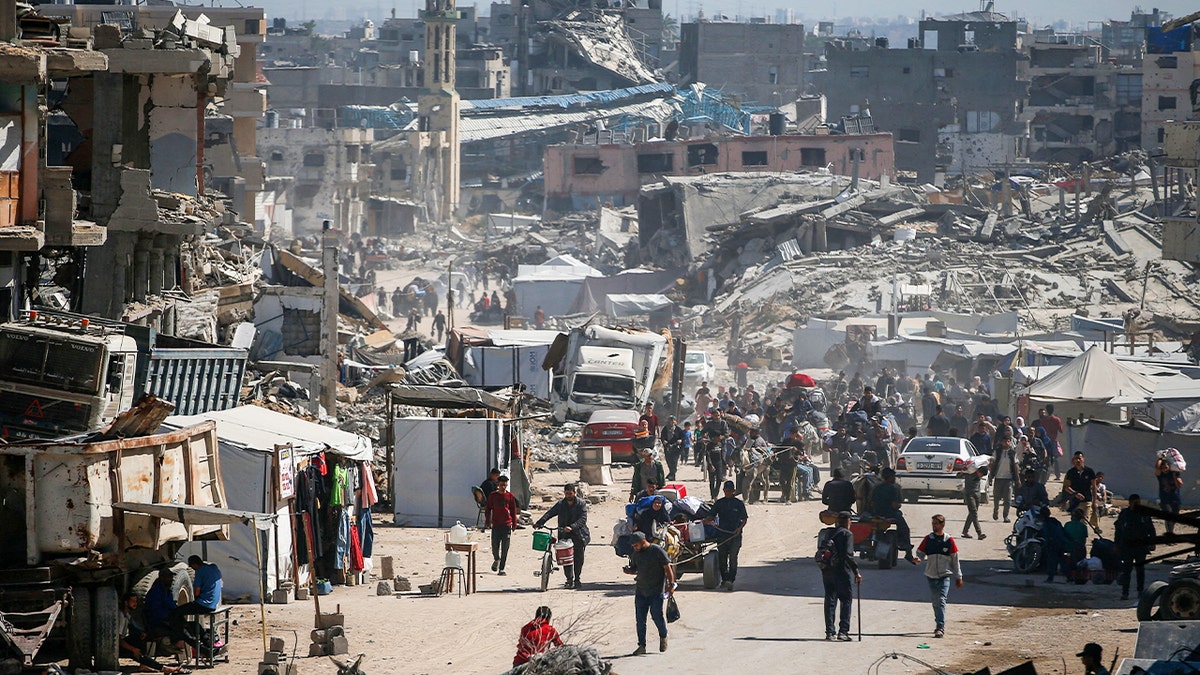
Palestinians make their way with belongings as they flee their homes, after Israeli airstrikes, in the northern Gaza Strip on May 16, 2025. (Reuters/Mahmoud Issa)
He added that Israel is working closely with the United States to find countries willing to help realize this approach. “We’re getting close to finding several countries,” Netanyahu said. “And I think this will give, again, the freedom to choose. Palestinians should have it. And I hope that we can secure it.”
Makovsky said Trump now sees Gaza and Iran as sequential “episodes.” “He sees the war with Iran as a successful episode – it’s time to end that and pivot to peace,” he said. “He wants to move toward expanding the Abraham Accords, particularly with Saudi Arabia.”
The two leaders also touched on Syria. “I think there’s an opportunity to explore,” Netanyahu said, referencing recent shifts after the collapse of the Assad regime. Makovsky said Syrian President Ahmed al-Sharaa may be seeking “some sort of arrangement” with Israel to gain U.S. support. “He’s incredibly flexible and practical,” Makovsky noted.
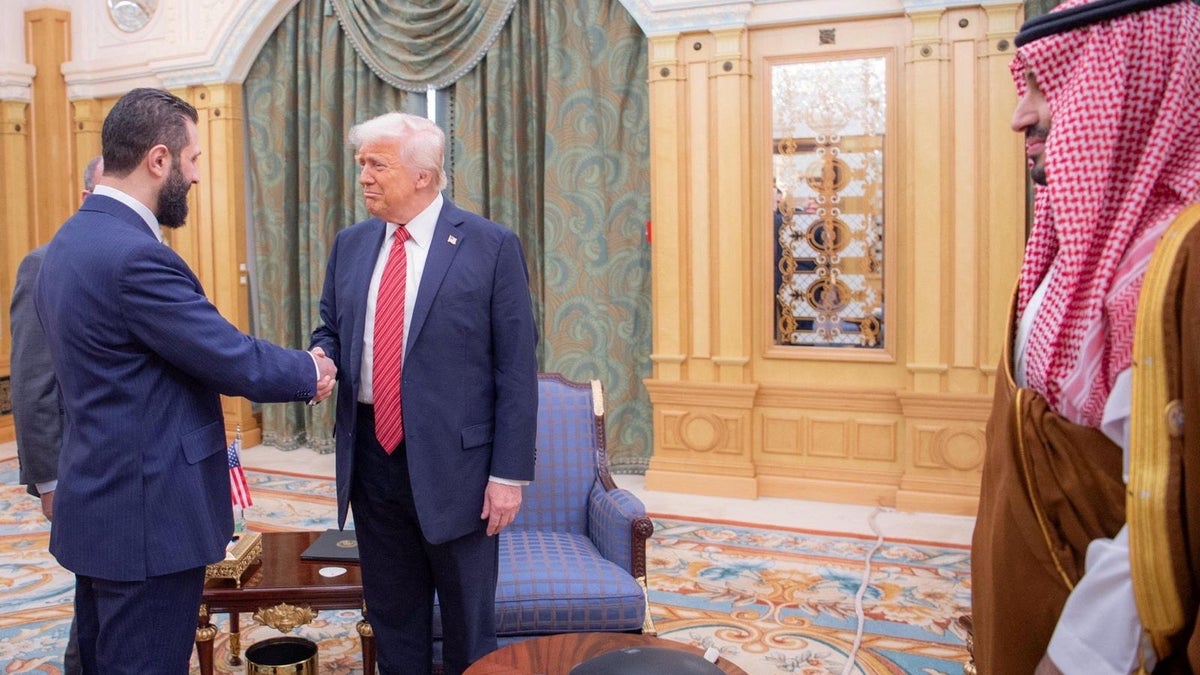
President Donald Trump meets with Syrian President Ahmed al-Sharaa in Riyadh, Saudi Arabia, on May 14, 2025. (Saudi Press Agency/Handout via Reuters)
As Netanyahu put it, “This has already changed the face of the Middle East.” Trump added, “We’re on the way to a lot of great results.”
On Tuesday Netanyahu will meet with the speaker of the House, Mike Johnson, R-La.
